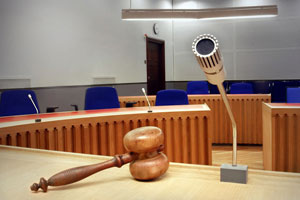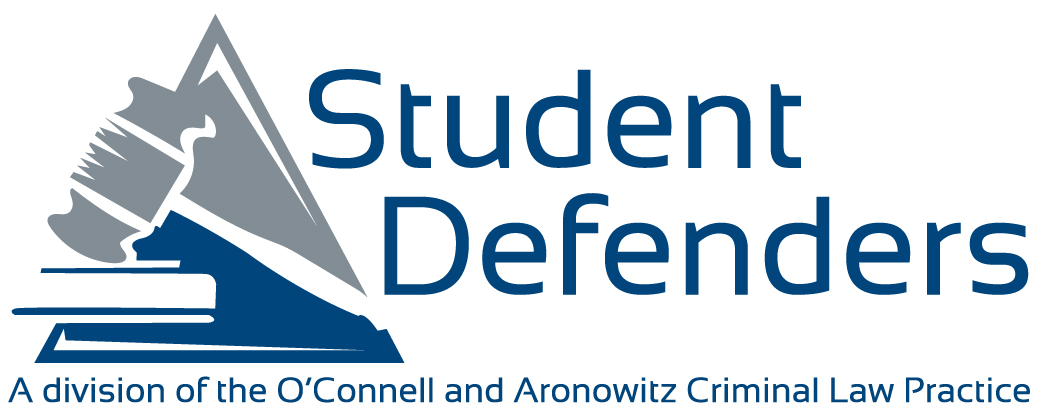Accused of a student conduct violation?
 We vigorously fight for your rights to protect the investment you made in your education and your future.
We vigorously fight for your rights to protect the investment you made in your education and your future.
We handle accusations of all levels of complexity and at all stages of academic proceedings – from academic dishonesty and hazing to alcohol-related incidents and charges of sexual assault.
How will the school handle the charges against me?
Each school’s investigative and disciplinary process is different, but generally, there are five critical stages to all student disciplinary proceedings.
We know what to do at each and every stage to protect you, your rights and your future. Contact us immediately to discuss your rights and make a plan of action.
The Investigation
The school has learned about allegations of misconduct and they are collecting facts. This investigation is usually done by Campus Safety/Security officers and/or staff from the Dean of Students or Residential Life offices. Once the investigation is complete, they will either:
 Close the matter as unfounded
Close the matter as unfounded- Negotiate a resolution
- Refer it to the school’s disciplinary hearing process for further action.
We know how to immediately intervene at this point and conduct our own investigation centered on protecting you. From the first moment an accusation is made, we can get involved. It is critical that no student speak with school officials without speaking to an attorney first. The school can and will use what you say against you. You have an absolute right to have counsel and should exercise that right.
The investigation phase is also a critical time to negotiate with the school. An acceptable resolution or understanding can often be reached without any further action. We know how to handle these negotiations to ensure the best possible result for you.
The Hearing
 Each school has unique procedures for conducting disciplinary hearings. Generally, the school assembles a panel of faculty, staff and/or students to hear the case. Evidence (documents, pictures, etc.) are usually received by the panel if presented by the accused or accuser. Witnesses can testify and be asked questions. Usually the accused and the accuser are invited to make a statement. In the end, the panel will deliberate and make a decision.
Each school has unique procedures for conducting disciplinary hearings. Generally, the school assembles a panel of faculty, staff and/or students to hear the case. Evidence (documents, pictures, etc.) are usually received by the panel if presented by the accused or accuser. Witnesses can testify and be asked questions. Usually the accused and the accuser are invited to make a statement. In the end, the panel will deliberate and make a decision.
While most schools limit what attorneys can do during the hearing, we know how to prepare you, your witnesses, and your evidence so you can present the strongest case possible. We also know how to use and engage the services of expert witnesses and consultants (doctors, psychologists and investigators) to give you the best possible defense.
The School’s Appeal Process:
After a decision is made, there is usually an opportunity to appeal to a higher level within the school. Often the grounds to challenge a decision are limited to procedural errors, the presentation of new evidence that was not considered by the hearing panel or the severity of the sanction imposed. These arguments need to be precisely crafted and correctly presented at the right time and in the right way. Correctly identifying all possible legal arguments for an appeal is also essential to preserving those arguments for later action in a court of law.
The School’s Final Decision:
After the appeal is received and reviewed, the school will make a final decision. No matter what that final decision is, you may still be able to challenge it through the State or Federal courts, but the challenge must be brought within a very short time limit (“statute of limitations”). For example, in New York State, any challenge to a school’s decision must be made within four (4) months of the school’s final decision.
Challenging the School’s decision in State and Federal Court:
New York State law permits a student to challenge the final decision of any private or public college. This is often done through a lawsuit referred to as an Article 78 proceeding. To prevail, a student must show either that the school’s decision was “arbitrary and capricious” or that the school failed to substantially follow its established guidelines and procedures during the disciplinary process.
The Court will only consider arguments that have already been made at the right time and in the right way to the school. Accordingly, it is important for us to be involved throughout the entire process to ensure your rights are protected at each and every step. Some cases can also be challenged in Federal Court if a federal right or a federal law (such as Title IX) was violated by the school.

